Excess Babies: The Tragedy of the Surrogacy Industry During COVID-19
Surrogacy agency in Ukraine left with babies who will not be collected by the biological parents
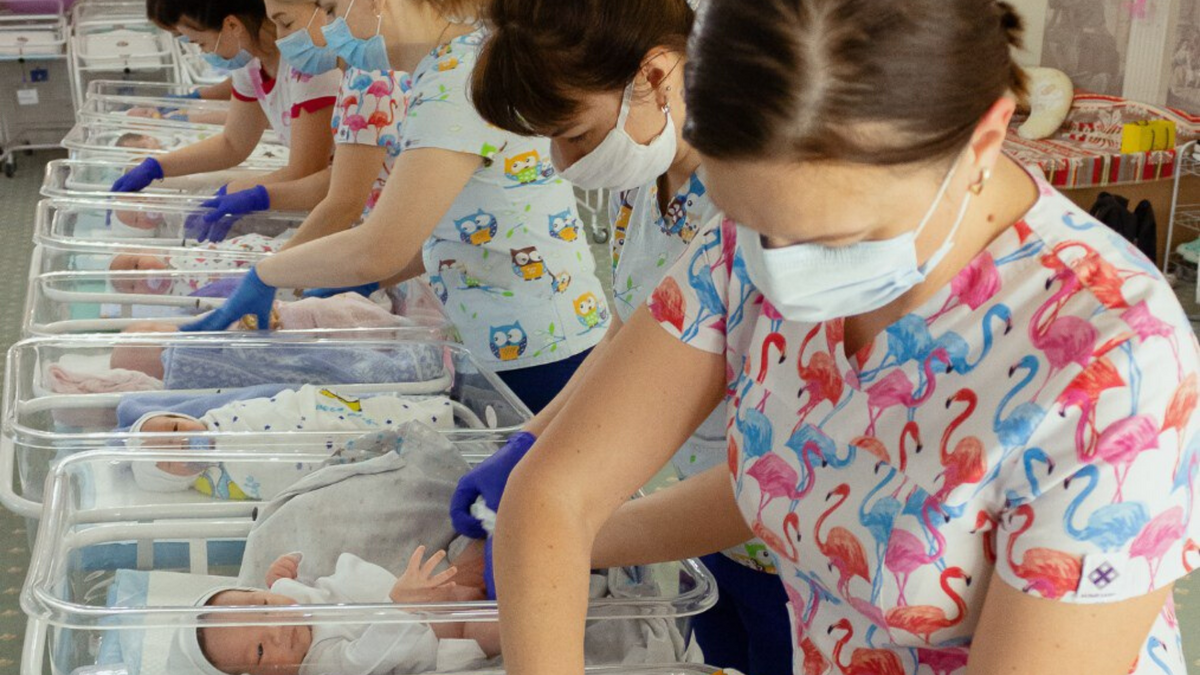
BioTexCom is a Ukraine-based agency specializing in “human reproduction”, according to their website. The company is a favorite agency among Spanish parents who wish to have a biological child but have fertility issues.
A Twitter user has posted a grim account of their business practices, with pictures of several babies in a nursery, in what looks like a hospital setting. The tweet, by user @gmm223, was made at the end of March and went viral. It was shared thousands of times on the social media platform after the newspaper Publico published a news piece about some of the measures taken by Ukraine to repatriate citizens stranded in Spain.
The human reproduction center claims to offer, among other means of assistance in reproduction, surrogacy to those who can pay for it. Surrogacy is illegal in Spain, which causes families to seek women to exploit in other countries.
Sabéis que bebés son éstos?
— gmm (@gmm223) March 31, 2020
Los bebés de los explotadores reproductivos que no han podido ir a recoger a sus bebés por el cierre de fronteras... pic.twitter.com/gX86XMxNkm
But in 2020, the world is facing a pandemic. Ukraine, like many other countries, closed its borders and put the country in lockdown to try and stop the spread of COVID-19.
In the middle of the chaos, would-be parents who hired a surrogate to have a baby were left with no way of traveling to Ukraine to collect the child. In an update on the agency’s website, there is a lengthy and detailed account of the current situation, showing pictures of the newborn children who are awaiting to be picked up by their biological parents. The children are born stateless, stored in hotels and private homes with no official legal guardian.
BioTexCom, which charges about $50,000 per baby, has previously been implicated in a series of scandals including human trafficking. The surrogacy industry in Ukraine has so little oversight that experts have claimed, “it’s as if there were no regulations at all.”
Publico reports that Ukraine set up a few flights from Spain to bring back Ukraine nationals. Some of these flights will be used by Spanish citizens to go to Ukraine and collect some of the babies. But not all of them will be collected, and many will remain in Ukraine in hotels or private homes with paid babysitters.
The update on BioTexCom website also reveals that the costs of maintaining a child in the center has been reduced from 50 euros to 25, supposedly to help those parents who might have lost or had their livelihoods reduced due to the closing of non-essential businesses during confinement. Other measures the center has taken are the possibility of signing contracts online. There also seems to be a “standard” contract in which parents send 90 euros for clothing for the baby.
But despite the clinic being on quarantine, they assure their customers and prospective clients that business is open as usual, which begs the question: how are they working in quarantine with surrogates? What are the social distancing measures and other medical requirements being taken to ensure those women are being protected from COVID-19?
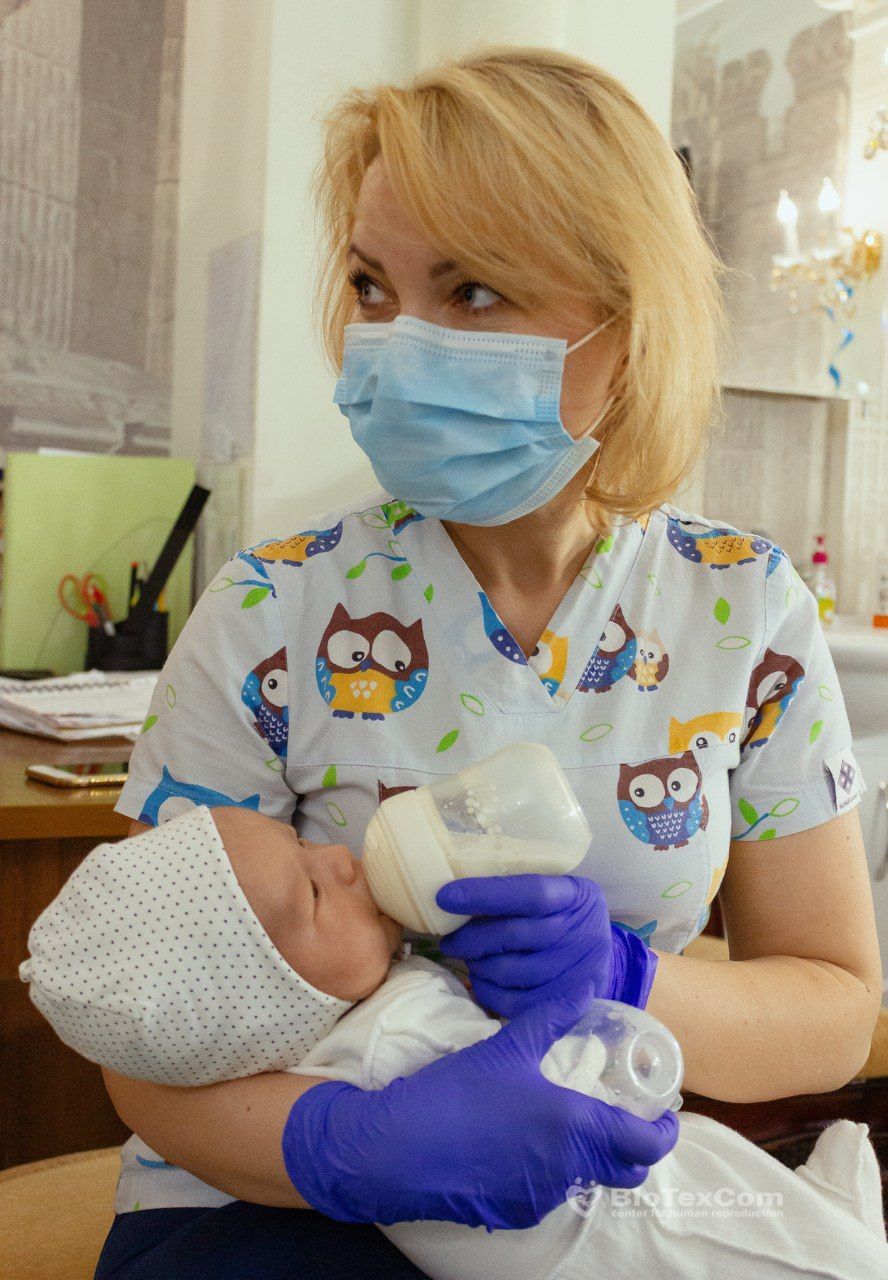
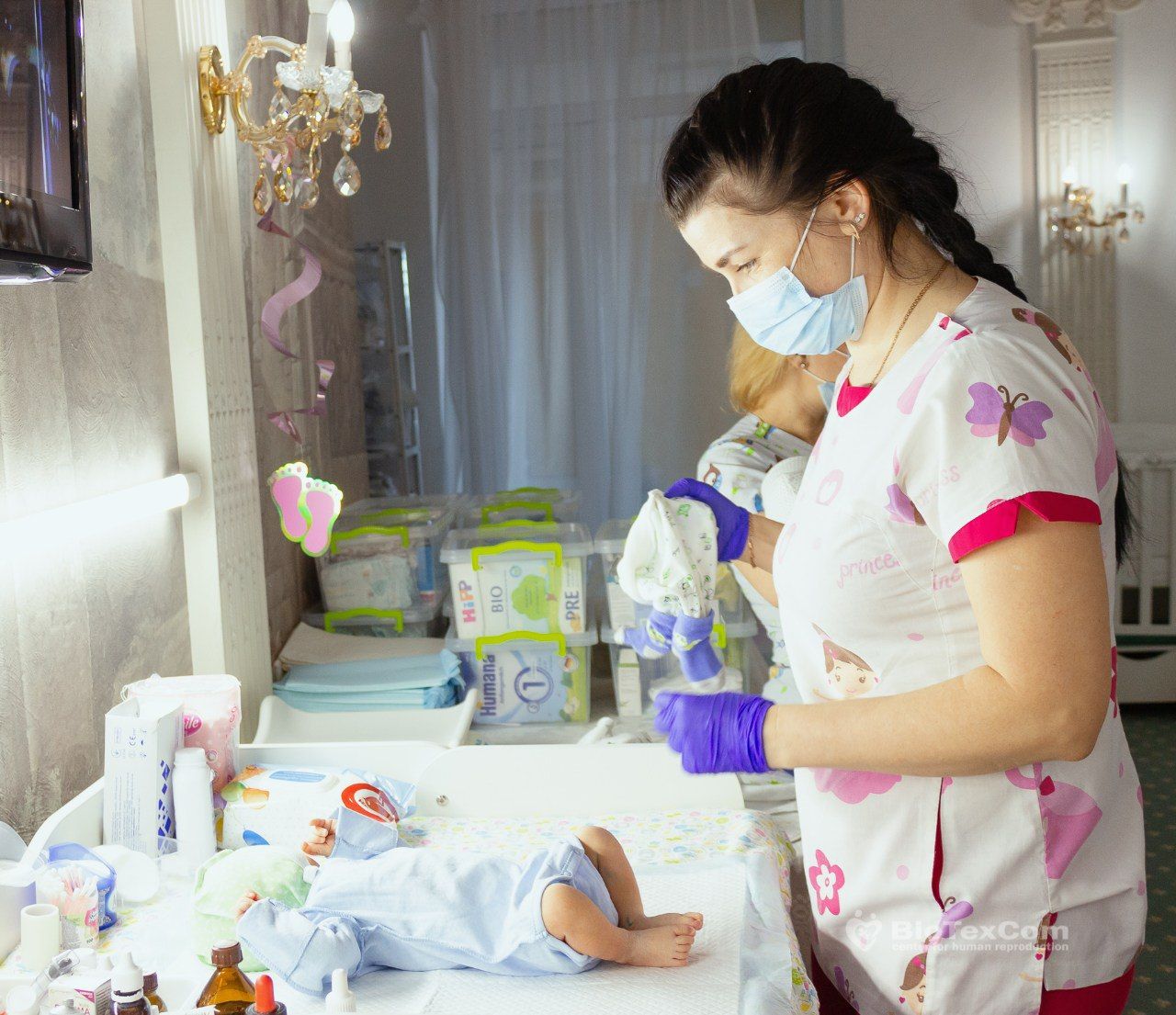
There’s also the matter of the babies themselves, who are being kept by nurses and midwives. According to the information available on the BioTexCom website, there are 46 babies there who could not be collected so far because the parents could not travel to Ukraine.
The women who gestated and gave birth to them, besides all the risks they faced to have them, are now facing two different fates: either they will not receive the money promised for this “service” and will have to choose to leave the child in foster care, or they will be raising a child who was not planned for themselves. Either way, it’s a grim outcome for women who largely turned to the industry out of financial desperation.
The women’s rights movement has been warning the world about the “womb rental” market for some time now, and it seems that the worst fears of many feminists have materialized. Commercial surrogacy is an example of women’s exploitation that has been overlooked by many governments around the world, or ignored as a non-issue. Many politicians seem to still believe that having a biological child is just another human right, and many places are legalizing this practice, like the UK has, very recently.
But a closer look into what really happens when surrogacy is legalized or allowed reveals a darker side to the story. Women who became surrogates have died while gestating a child for other parents. In some places, the “baby factories” have been known to kidnap women and take them hostage for months for the IVF procedure, forcibly keeping the pregnant women in their premises until they give birth. Some accounts have revealed that, in the crudest “businesses”, women are raped until they get pregnant. Many of them are also forced to breastfeed the babies for months until the children can be collected by the biological parents.
How are things going at the Venice hotel now?
— BioTexCom Center for Human Reproduction (@BiotexcomR) April 16, 2020
Our babysitters are doing their best to cope with your little ones😉#biotexcom #COVID19 #surrogacy #ivf #Ukraine pic.twitter.com/iXoKIg8Vin
Julie Bindel, a prominent British radical feminist and journalist, has been writing about surrogacy for decades. In her latest piece for Unherd this year, she talks about the many places she visited over the years, talking to the staff of “baby factories” in India, where women told her, first hand, how they were detained together and only had something to drink or eat when their captors allowed them to.
She also explains that it doesn’t matter where womb rental is legalized - the women caught up short of money who offer their wombs for surrogacy are dehumanized, like the American woman she talked to, who wanted to start her own business and saw an advertisement on the internet. The mother of two later recalled the horrors of the process, when she was implanted with two fertilized eggs without her knowledge, for a better chance of getting pregnant, and ended up with twins, one of which she was told she had to terminate because the biological parents only wanted one child.
In the case of this Ukrainian agency, there is also an increasing risk that many clients will not ever come to collect their child. The foreign parents, unable to travel to Ukraine now may refuse to collect the child after they are months old, claiming they are “older” than they had desired – and paid for. This is one of the “benefits” of womb rental: not only to ensure a biological child, but also to have a newborn baby, which has been an issue to foster agencies for many years now. Research has shown that prospective adoptive parents have a preference for young babies (among other traits, such as skin color) and that older children are usually hard to place as many people fear getting a child who might be “psychologically challenging”.
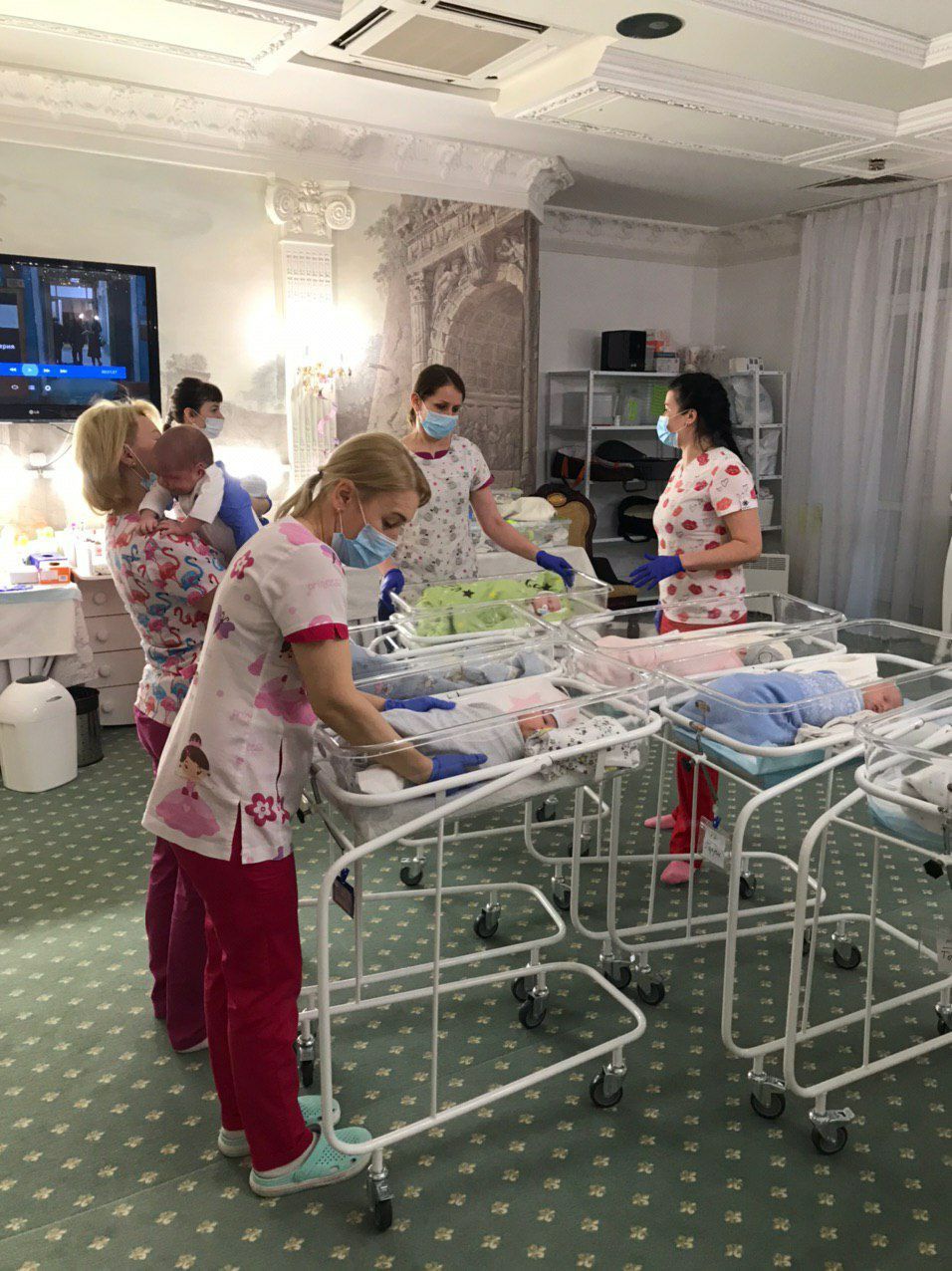
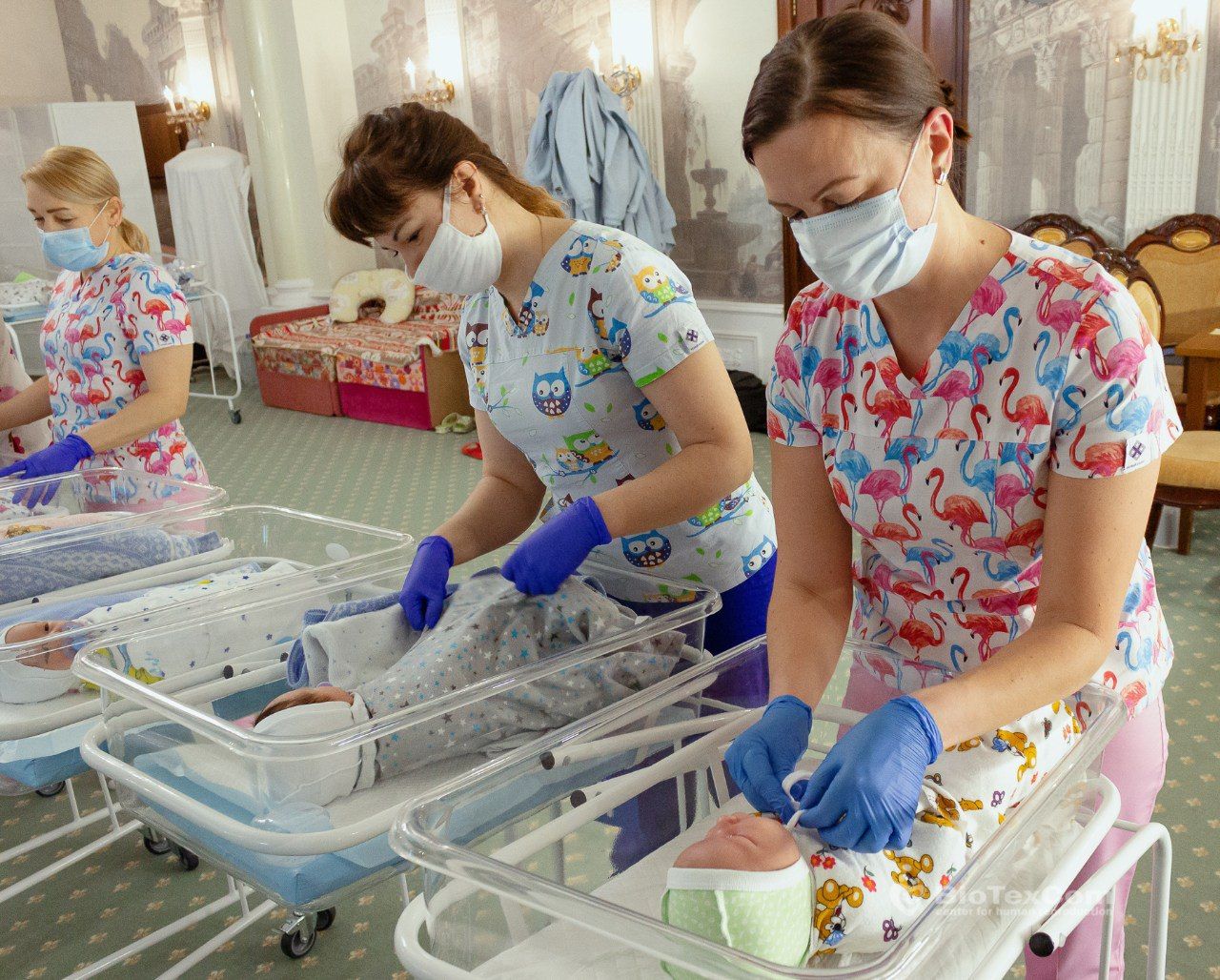
BioTexCom claims to guarantee the safety of the babies born in the center with a team of babysitters with “a medical education”. Publico reports that the staff have been in lockdown with the babies for 30 days, unable to see their own families.
Although BioTexCom claims to be ensuring the rights of babies born “for foreign couples in Ukraine”, this is resulting in a lack of oversight. The reality is that these babies were born to Ukrainian women in Ukraine, but a gap in the law is allowing BioTExCom to get away with their unethical practices. The children born in confinement had not been “released” from hospital, therefore they don’t need to be registered. That made them children without a country.
As in many other areas of our society, the pandemic has exposed a deeply flawed system—one where both women and children are treated as nothing more than objects for consumption.
The generous support of our readers allows 4W to pay our all-female staff and over 50 writers across the globe for original articles and reporting you can’t find anywhere else. Like our work? Become a monthly donor!
Enter your email below to sign in or become a 4W member and join the conversation.
(Already did this? Try refreshing the page!)


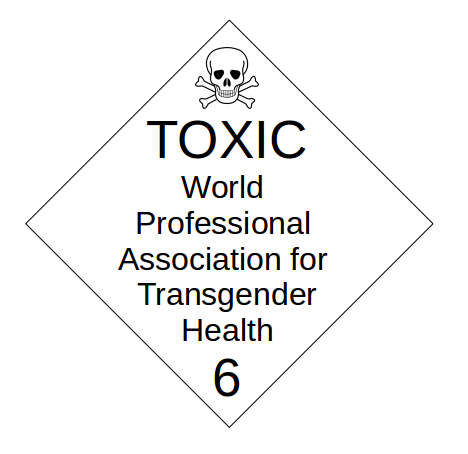

Comments